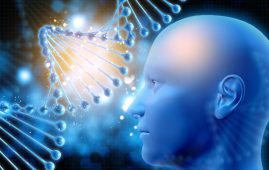

Both inflammatory bowel disease (IBD) and Parkinson’s disease (PD) are chronic inflammatory conditions, and some scientists hypothesize a common pathway for both involving the leucine-rich repeat kinase 2 (LRRK2) gene. A recent study published in Genome Medicine examined rare gene variants found in people with both these conditions in a bid to identify the genetic underpinnings common to both.
Join the Global Neurology Summit and explore latest research and discussions on Parkinson’s and related topics.
Insights into Inflammatory Bowel Disease (IBD) and Parkinson’s Disease (PD)
Inflammatory Bowel Disease encompasses various gastrointestinal ailments like Crohn’s disease (CD) and ulcerative colitis (UC), characterized by chronic inflammatory damage to different segments of the gut. Parkinson’s disease, conversely, manifests as a prevalent neurodegenerative disorder, resulting in a spectrum of symptoms including slow movement, rigidity, tremors, and postural instability due to the loss of dopaminergic neurons in specific brain regions.
Shared Risk Factors and Pathways
Recent findings suggest that IBD and PD share common risk factors and pathways, despite affecting seemingly distant organs. This correlation may stem from chronic systemic inflammation, possibly influenced by the gut-brain axis, among individuals genetically predisposed to neurodegeneration.
Meta-Analysis Insights
A recent extensive meta-analysis involving 12 million patients reinforces this notion by demonstrating a heightened risk of PD among individuals diagnosed with IBD, particularly after the age of 65. Conversely, the use of anti-inflammatory drugs such as TNF-α inhibitors substantially reduces the risk of PD. These findings suggest a potential link between inflammation, shared genes, or both in the onset of IBD and PD.
Understanding the Role of LRRK2
LRRK2 emerges as a pivotal gene associated with both IBD and PD, with specific variants like G2019S and N2081D linked to increased risk for CD and PD, respectively. The study in focus aims to delve deeper into this association by analyzing patients presenting with co-occurring IBD and PD, focusing on LRRK2 missense variants.
Investigative Approach
Researchers scrutinized genomic data from 67 European patients with both PD and IBD, alongside whole exomes from the BioMe BioBank and UK Biobank. They sought to explore how non-functional LRRK2 variants influence the likelihood of developing either condition or both simultaneously.
Unveiling Study Findings
The study unearthed compelling evidence linking certain LRRK2 missense variants to the co-occurrence of IBD and PD, shedding light on potential genetic predispositions. Additionally, it identified other variants capable of modulating the risk of such co-occurrence, underscoring the complex interplay between genetics and disease pathogenesis.
Expanding Knowledge Frontiers
Moreover, the research uncovered novel candidate genes associated with autophagy and inflammation pathways, augmenting our understanding of IBD-PD etiology. These findings emphasize the imperative of mitigating systemic inflammation in managing these interconnected conditions.
Future Directions
Moving forward, comprehensive investigations into the genetic determinants of IBD-PD comorbidity are paramount to refining risk stratification and personalized treatment approaches. Large-scale studies encompassing both common and rare variants will be instrumental in elucidating the intricate genetic landscape underlying these co-occurring disorders.
For more information: The landscape of rare genetic variation associated with inflammatory bowel disease and Parkinson’s disease comorbidity, Genome Medicine 2024, https://doi.org/10.1186/s13073-024-01335-2
more recommended stories
 Caffeine and SIDS: A New Prevention Theory
Caffeine and SIDS: A New Prevention TheoryFor the first time in decades,.
 Microbial Metabolites Reveal Health Insights
Microbial Metabolites Reveal Health InsightsThe human body is not just.
 Reelin and Cocaine Addiction: A Breakthrough Study
Reelin and Cocaine Addiction: A Breakthrough StudyA groundbreaking study from the University.
 Preeclampsia and Stroke Risk: Long-Term Effects
Preeclampsia and Stroke Risk: Long-Term EffectsPreeclampsia (PE) – a hypertensive disorder.
 Statins and Depression: No Added Benefit
Statins and Depression: No Added BenefitWhat Are Statins Used For? Statins.
 Azithromycin Resistance Rises After Mass Treatment
Azithromycin Resistance Rises After Mass TreatmentMass drug administration (MDA) of azithromycin.
 Generative AI in Health Campaigns: A Game-Changer
Generative AI in Health Campaigns: A Game-ChangerMass media campaigns have long been.
 Molecular Stress in Aging Neurons Explained
Molecular Stress in Aging Neurons ExplainedAs the population ages, scientists are.
 Higher BMI and Hypothyroidism Risk Study
Higher BMI and Hypothyroidism Risk StudyA major longitudinal study from Canada.
 Therapeutic Plasma Exchange Reduces Biological Age
Therapeutic Plasma Exchange Reduces Biological AgeTherapeutic plasma exchange (TPE), especially when.

Leave a Comment